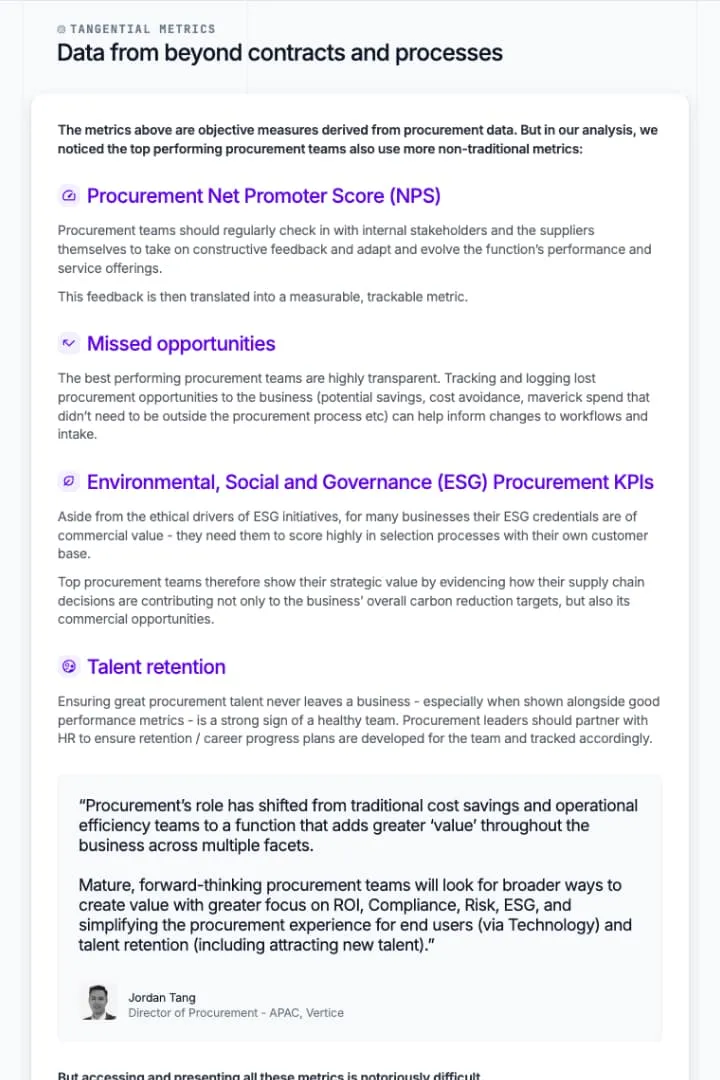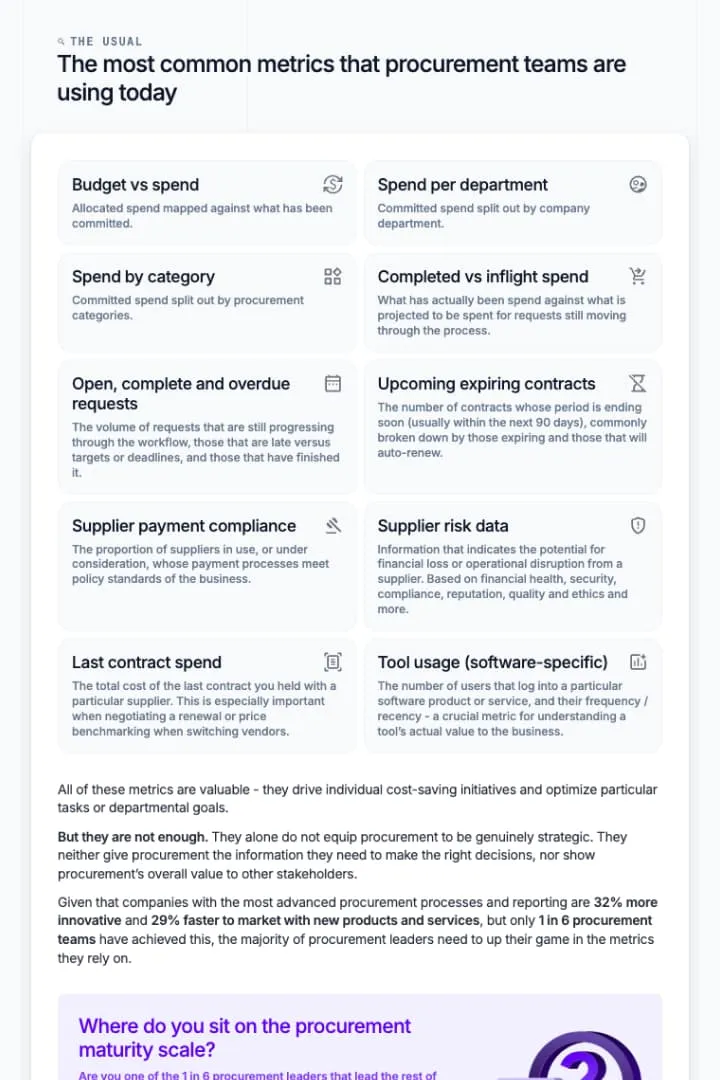


How to use procurement metrics strategically
By uncovering procurement data such as department-specific approval times, teams can:
- Leverage the data to ensure stakeholders are prioritizing purchase requests
- Identify issues across the approval process
- Improve stakeholder buy-in
Stakeholders may be being asked too late, too early, and without the right information. By tracking the procurement metrics that matter, you can fix these issues, improve approval speed, and increase the team's internal reputation.

.jpg)
Why are deeper procurement metrics crucial for success?
By tracking the right KPIs, high-performing teams can demonstrate procurement ROI and justify:
- Further investment in the department (spend management software, procurement orchestration tools, and RFP automation).
- Supporting talent development
- Investigating process and workflow inefficiencies
They can also set data-driven goals such as reducing turnaround times or improving supplier relationships.
The need-to-knows
Procurement KPIs are metrics used to evaluate how well procurement activities are performing against specific objectives. By tracking them, teams can monitor and assess both the efficiency and effectiveness of their processes. Procurement key performance indicators can also help to deliver continuous improvements, drive better supplier relationships, improve decision-making, and contribute to long-term business success.
While it's important that any procurement team is tracking basic procurement metrics around supplier performance, process performance, and cost savings, it's also beneficial to dive deeper into areas such as approval times per function and procurement ROI. Vertice's report outlines 11 of the most advanced procurement data points that the top procurement leaders are tracking, allowing them to become far more strategic and deliver real value across their organization.
To get a more holistic view of where your organization ranks in terms of its current procurement performance – and how it compares to other industry standards – it's also worth taking our procurement maturity assessment questionnaire.
Procurement analytics enable teams to analyze procurement data, identify trends, and gain insights into areas such as supplier performance, cost management, and even risk factors. By leveraging analytics, procurement teams can make far smarter, data-driven decisions that help deliver cost reductions, improve vendor relationships, and drive organizational value.





























